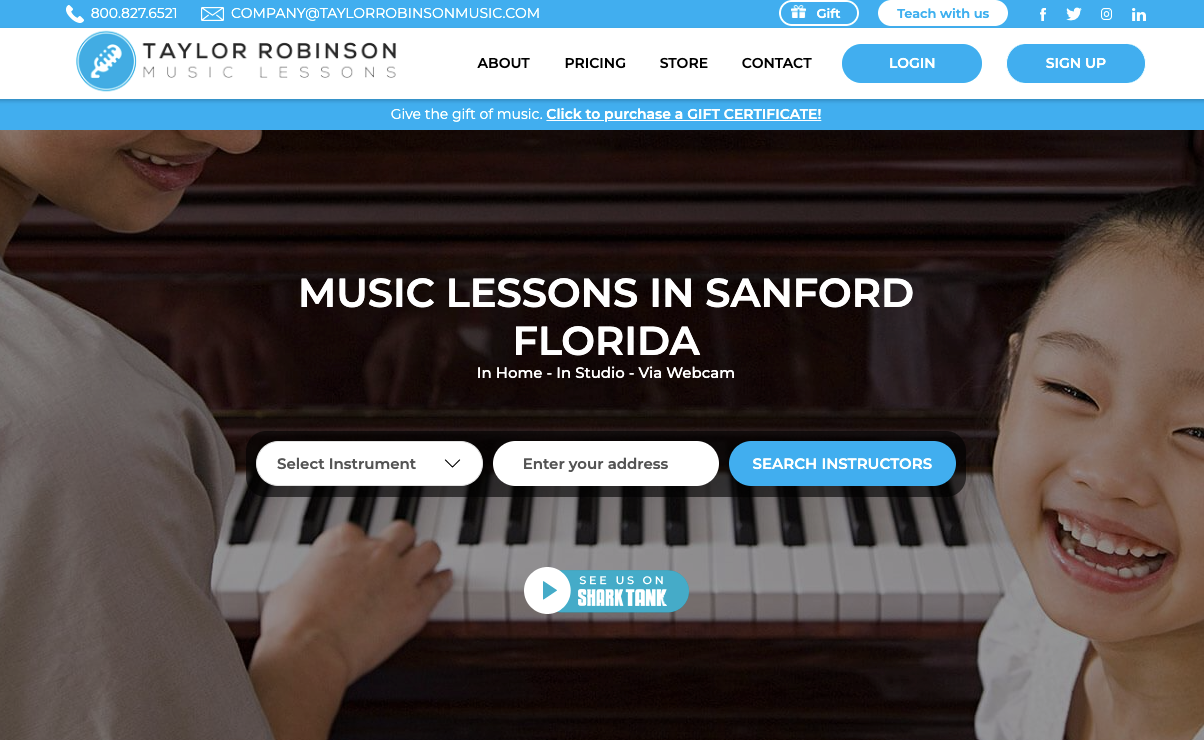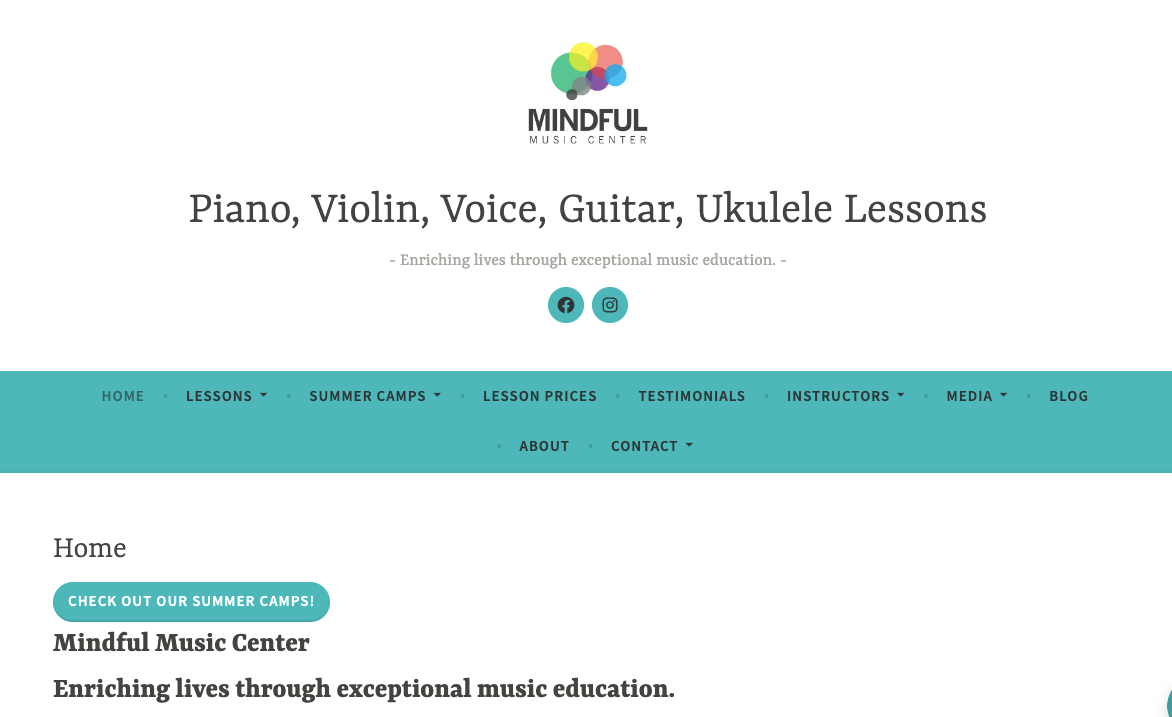If you’re looking to improve your singing skills, taking singing lessons is a great way to do it. However, with so many options available, it can be difficult to know where to start. Fortunately, if you live in the Sanford, Florida area, there are plenty of excellent singing lessons available.
In this article, we’ve compiled a list of the 10 best singing lessons near Sanford, Florida. Whether you’re a beginner looking to learn the basics or an experienced singer looking to take your skills to the next level, there’s something on this list for everyone.
We’ve researched and evaluated each of these singing lessons based on factors such as the experience of the instructors, the teaching methods used, and the feedback from past students. Additionally, we’ve included information about the location, pricing, and availability of each of these singing lessons.
By reading this article, you’ll be able to make an informed decision about which singing lessons are right for you. Whether you’re interested in taking lessons for fun or pursuing a career in singing, investing in your vocal abilities is always a good idea. So, without further ado, let’s dive into our list of the 10 best singing lessons near Sanford, Florida.
1. TR Music & Voice Lessons

Website: https://www.taylorrobinsonmusic.com/Sanford-music-lessons.html
Address: 2551 Narcissus Ave, Sanford, FL 32771, United States
TR Music & Voice Lessons is a top-rated music school located in Sanford, Florida. With experienced and skilled instructors, this music school provides high-quality vocal lessons for students of all ages and skill levels. Whether you’re a beginner or an experienced singer, TR Music & Voice Lessons has something to offer.
The instructors at TR Music & Voice Lessons work with students to develop a personalized approach to learning. They utilize a variety of teaching methods, including vocal exercises, music theory, and performance techniques, to help students achieve their goals.
In addition to vocal lessons, TR Music & Voice Lessons also offers instruction in a variety of musical instruments, including guitar, piano, drums, and more. With flexible scheduling and affordable pricing, TR Music & Voice Lessons makes it easy for anyone to pursue their musical interests. If you’re looking for high-quality singing lessons in Sanford, Florida, TR Music & Voice Lessons is definitely worth considering.
2. Mindful Music Center

Website: http://www.mindfulmusicsanford.com/
Address: 404 W 25th St, Sanford, FL 32771, United States
The Mindful Music Center is a unique music school located in Sanford, Florida, that offers vocal lessons along with other music-related services. The focus of this music center is on mindful and holistic learning, encouraging students to connect with their inner selves while also improving their vocal skills.
The vocal lessons at the Mindful Music Center are designed to help students develop healthy singing habits, improve their tone and range, and build confidence in their abilities. The instructors at this center are experienced singers themselves, who use a combination of traditional vocal techniques and mindfulness practices to help students achieve their goals.
In addition to vocal lessons, the Mindful Music Center also offers other music-related services such as sound healing, meditation, and yoga. This holistic approach to learning can help students improve not just their vocal abilities but also their overall well-being.
If you’re looking for a music school that takes a more mindful and holistic approach to vocal training, the Mindful Music Center in Sanford, Florida, is an excellent choice.
3. Lochwood Academy for the Performing Arts

Website: http://www.lochwoodacademy.com/
Address: 109 W Commercial St, Sanford, FL 32771, United States
The Lochwood Academy for the Performing Arts is a renowned music school located in Sanford, Florida. The vocal lessons offered by this academy are geared towards students of all ages and skill levels, from beginners to advanced singers.
The vocal instructors at the Lochwood Academy are highly trained professionals who have a wealth of experience in the music industry. They use a combination of traditional vocal techniques, music theory, and performance skills to help students develop their vocal abilities.
In addition to vocal lessons, the Lochwood Academy also offers instruction in a variety of musical instruments, including guitar, piano, and drums. They also offer workshops and masterclasses to help students learn from industry experts and gain valuable performance experience.
The Lochwood Academy is committed to providing a safe, nurturing, and inspiring learning environment for all its students. If you’re looking for a high-quality music school that offers excellent vocal lessons in Sanford, Florida, the Lochwood Academy for the Performing Arts is definitely worth checking out.
“Tips for Learning How To Sing”
Singing is a universal human expression that has been enjoyed for centuries. Whether it’s belting out a tune in the shower or performing on stage in front of thousands, singing is an activity that can bring joy, emotional release, and even therapeutic benefits. However, beyond the technical aspects of singing, the psychology behind the art form plays an important role in determining the quality of our voices and the experience of singing itself. In this article, we will explore the psychology of singing, how our minds affect our voices, and what we can do to improve our singing abilities.
The first thing to understand about the psychology of singing is that it is closely linked to our emotions. Singing can evoke a range of feelings, from happiness and joy to sadness and grief. This is because the act of singing engages our whole body and brain, activating various neural pathways and releasing hormones such as endorphins and oxytocin. These chemicals are responsible for the feelings of pleasure and connection we experience when we sing, and they can also help to reduce stress, anxiety, and depression.
The connection between emotions and singing is particularly evident in the way we use our voices. When we sing, we are not simply producing sounds; we are communicating our feelings and thoughts through the words and melodies of a song. This means that the way we feel about a particular song can affect the way we sing it. For example, if we are feeling sad or melancholic, we might sing a ballad with a slower tempo and softer tone, whereas if we are feeling happy and energized, we might sing an upbeat song with more enthusiasm and volume.
Another aspect of the psychology of singing is the role of self-esteem and confidence. Singing can be a vulnerable activity, especially if we are performing in front of others. It requires us to expose our innermost emotions and feelings through our voices, and this can be daunting for some people. However, when we are able to sing with confidence and conviction, it can be an empowering experience that boosts our self-esteem and improves our overall sense of wellbeing.
The link between confidence and singing is particularly important when it comes to vocal technique. Singing requires us to use our breath, posture, and vocal cords in a coordinated and controlled way, and this can take time and practice to master. However, if we are overly self-critical or anxious about our abilities, we may hold back and not allow ourselves to fully engage with the singing process. This can lead to a lack of confidence in our voice and a tendency to shy away from singing altogether.
One way to overcome these feelings of self-doubt is to focus on the positive aspects of singing. This might involve setting achievable goals for ourselves, such as mastering a particular song or performing in front of a small group of friends or family. It might also involve finding a supportive community of singers or taking lessons with a vocal coach who can provide constructive feedback and encouragement.
Another important aspect of the psychology of singing is the role of memory and learning. Singing requires us to remember the lyrics, melody, and rhythm of a song, and this can be challenging for some people. However, research has shown that singing can actually enhance our memory and cognitive function by engaging multiple areas of the brain. This means that singing can be a valuable tool for learning and retaining information, whether it’s a new language, a historical event, or a scientific concept.
The link between singing and memory is particularly evident in the way we learn songs. When we listen to a song repeatedly, we are using a process called auditory-motor mapping, which involves creating a mental representation of the sound and movement patterns required to produce the song. This mapping process helps us to internalize the song and makes it easier to remember and reproduce in the future. In addition, the emotional connections we make with the song can also aid in memory retention, as emotions can help us to encode and retrieve information more effectively.
Furthermore, the act of singing can also be a form of self-expression and creativity, allowing us to tap into our innermost thoughts and feelings. When we sing, we have the opportunity to explore different vocal styles, experiment with different interpretations of a song, and even create our own original music. This can be a cathartic and fulfilling experience, especially for those who struggle to express themselves in other ways.
Overall, the psychology of singing is a complex and multifaceted topic that encompasses a range of emotional, cognitive, and social factors. From the way we use our voices to communicate our emotions to the impact of self-esteem and confidence on vocal technique, the psychological aspects of singing play an important role in shaping the way we experience and enjoy this art form.
So, what can we do to improve our singing abilities and enhance the psychological benefits of singing? Here are some tips:
1. Practice regularly: Like any skill, singing requires practice to improve. Set aside time each day or week to work on your vocal technique and learn new songs.
2. Focus on the process, not the outcome: Instead of fixating on perfection or comparing yourself to others, focus on the enjoyment of the singing process itself. Celebrate small victories and progress along the way.
3. Find a supportive community: Singing with others can be a great way to build confidence and connect with like-minded individuals. Look for local choirs or singing groups, or consider taking lessons with a vocal coach.
4. Experiment with different styles: Don’t be afraid to try out different genres and vocal styles. This can help you to expand your vocal range and find the styles that resonate with you the most.
5. Embrace your emotions: Singing can be a powerful tool for emotional expression and release. Don’t be afraid to tap into your innermost thoughts and feelings when singing, and allow yourself to fully engage with the emotional aspects of the songs you sing.
In conclusion, the psychology of singing is a fascinating and complex topic that highlights the ways in which our minds and emotions can affect our voices and our overall singing experience. By understanding and embracing the psychological aspects of singing, we can enhance our vocal abilities, improve our self-esteem and confidence, and experience the many emotional and cognitive benefits of this timeless art form.

